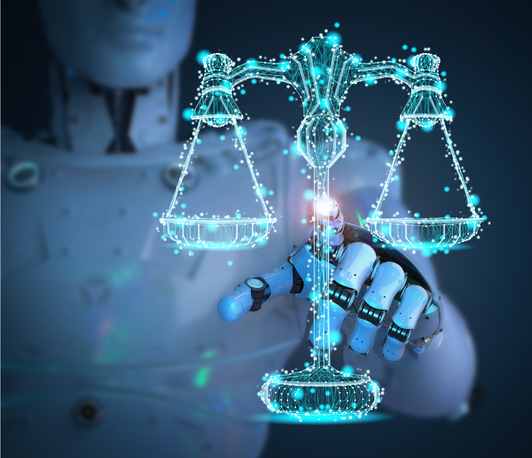Artificial Intelligence and the Rule of Law
(externe Veranstaltung)
Academic Workshop
- Datum: 30.03.2023
- Uhrzeit: 09:00 - 12:00 (Buenos Aires UTC-3:00)
- Ort: School of Law, University of Buenos Aires / Argentina
- Gastgeber: International Association of Penal Law (AIDP), Argentine Group

Workshop Organizer: Otto Hahn Research Group on Alternative and Informal Systems of Crime Control and Criminal Justice (Max Planck Institute for the Study of Crime, Security and Law).
International Colloquium Organizer: International Association of Penal Law (AIDP), Argentine Group.
Workshop Description:
In our globalized world, threats to the peaceful coexistence of humans and to public security have become global as well. In response to successive incidents of terrorism and highly sophisticated forms of serious national and transnational crime, a new security architecture is emerging. It is characterized by a global transformation of traditional legal notions and the blurring of boundaries between security and criminal law, prevention and repression, crime and migration control, as well as the exercise of public and private power. Personal freedom- and privacy-preserving principles such as the requirement of a concrete suspicion or threat prior to launching investigations are replaced with generalized mass surveillance, and, at the institutional level, informational separation makes way for the interoperability of national and international databases.
An increasing reliance on modern Artificial Intelligence (AI) tools for the purpose of the automated detection and suppression of security threats and possible crimes forms an integral part of this phenomenon. Proponents of these tools purport AI’s ability to enhance law enforcement and criminal justice in many ways: It can, they say, make the exercise of public authority more effective and efficient, legal decisions less biased and noisy, and interferences with fundamental rights less freedom-threatening. However, the use of these new technologies also entails many rule-of-law and human rights concerns. AI has the potential to radically expand the states’ powers of surveillance and coercion, as well as to drastically accelerate the aforementioned transformation process. As we introduce automation into our legal notions, they are transformed – potentially beyond recognition. This trend needs to be counterbalanced by bolstering established rule-of-law safeguards and procedural guarantees. In liberal democratic orders employing AI technology, the primary focus must be, hence, on fulfilling the constitutive requirements of the rule of law: the principle of legality, including the consistent and impartial application of foreseeable, clear and transparent norms and institutions; the principles of equality and proportionality; the nonarbitrary use of power and the respect of fundamental rights and procedural guarantees; the separation of state powers and the control of their exercise by independent and impartial judicial organs.
This workshop, organized by the Max Planck Society’s Otto Hahn Research Group on Alternative and Informal Systems of Crime Control and Criminal Justice within the framework of the AIDP International Colloquium on “AI and Administration of Justice: Predictive Policing and Predictive Justice,” is designed to tackle these complex questions. It focuses on the meaning and significance of rule of law and human rights considerations when designing and employing AI tools for security, crime control, and criminal justice purposes. We will be honing in on both the promises and perils of AI by integrating criminal and security law concerns into our cogitation on preventive justice – just as the emerging security architecture transcends these disciplinary boundaries. Participants are called to explore and discuss issues ranging from the practical opportunities and the rule-of-law challenges created by specific predictive policing instruments to the transformation of traditional notions, such as culpability or punishment, under the paradigm of predictive justice. Particularly sensitive matters connected to broader socio-legal and legal-ethical questions about justice, legitimacy, and democracy, such as the issues of privacy and data protection, transparency, bias, deception, explicability, and accountability, constitute significant subjects to be addressed during the workshop.